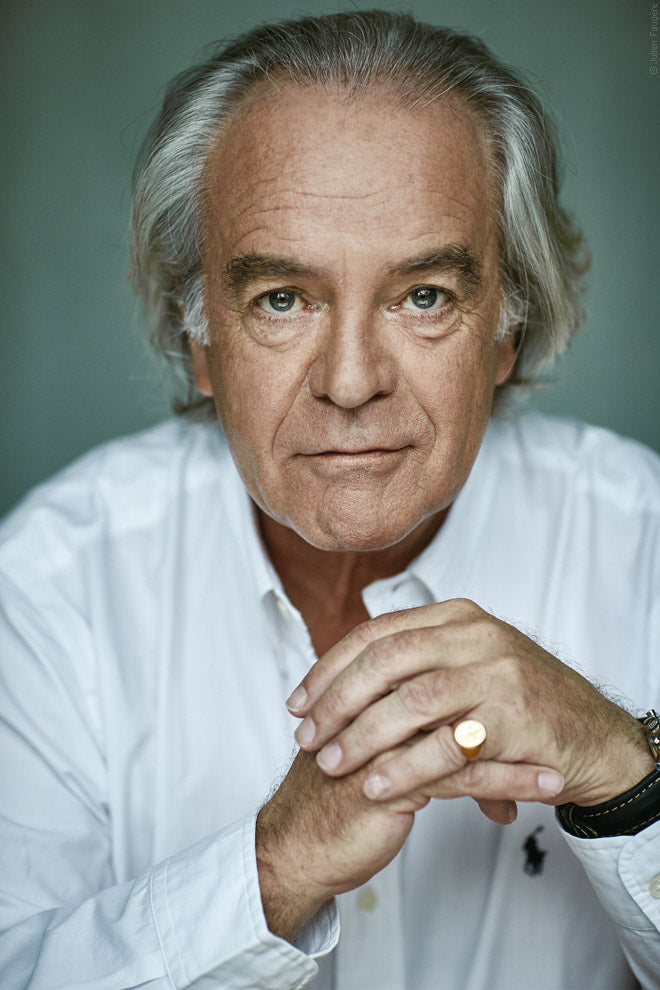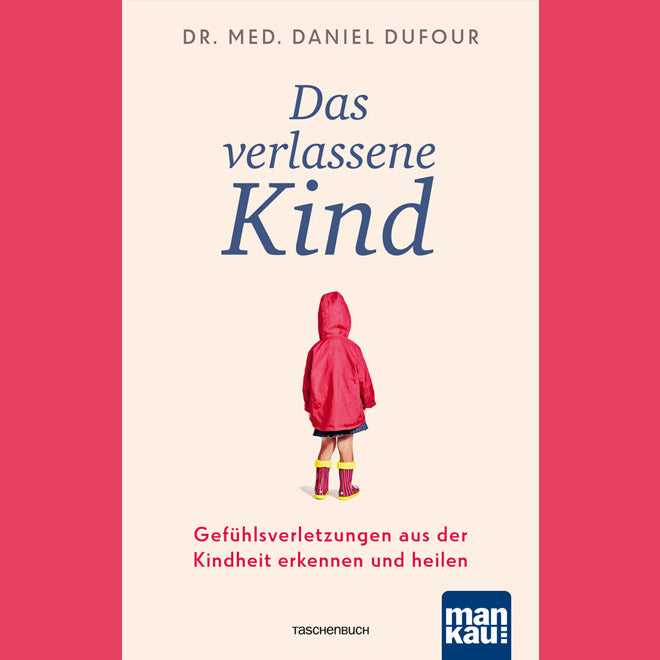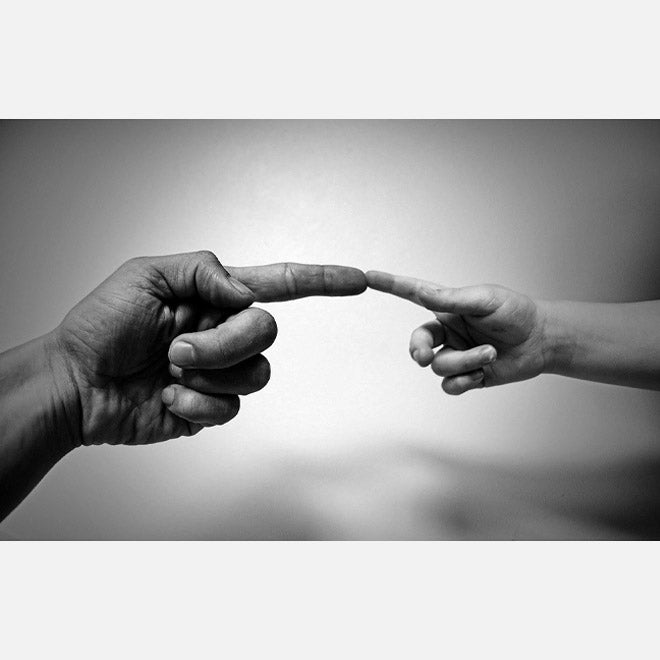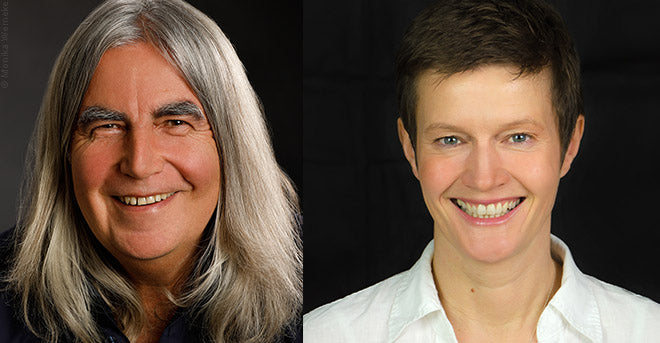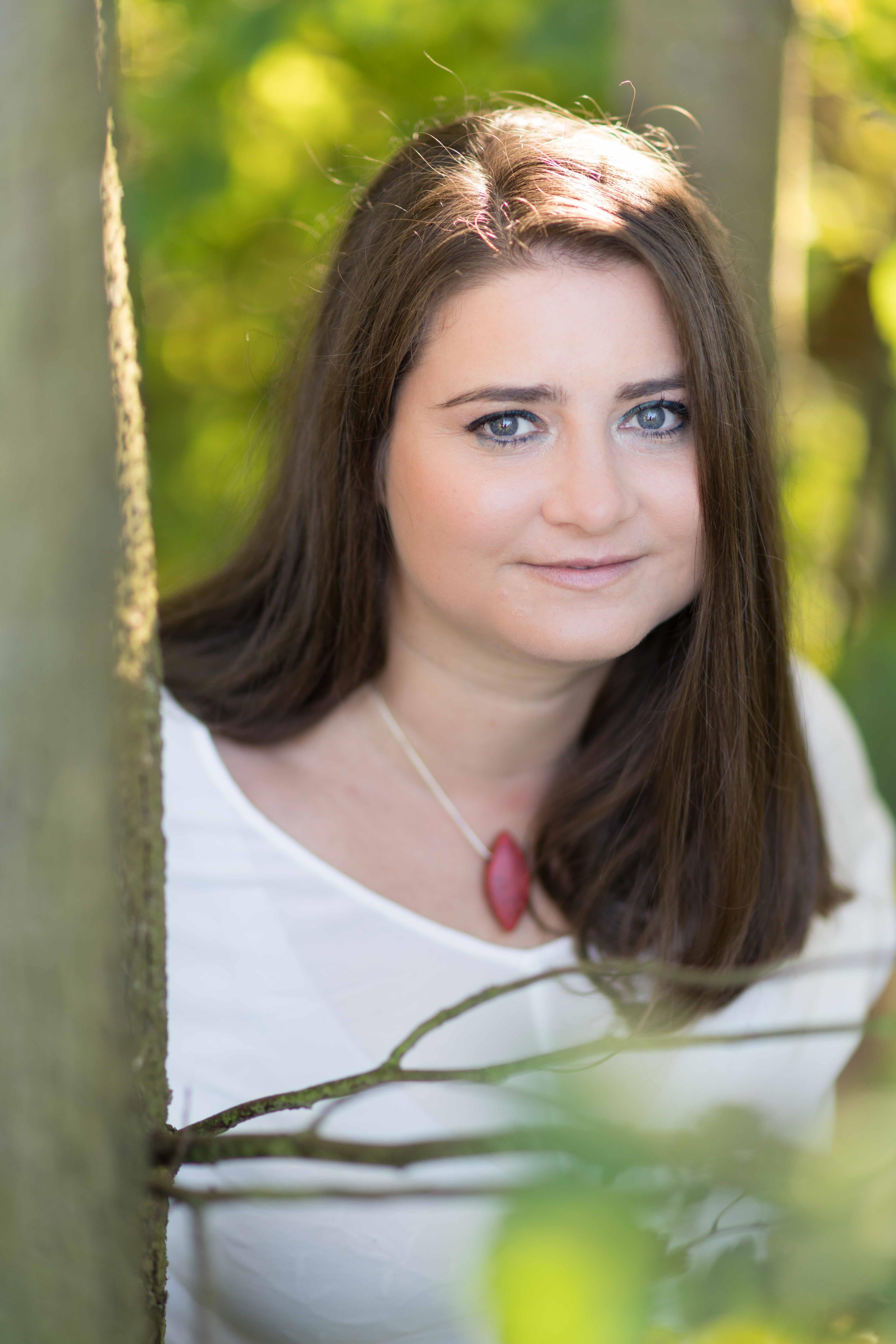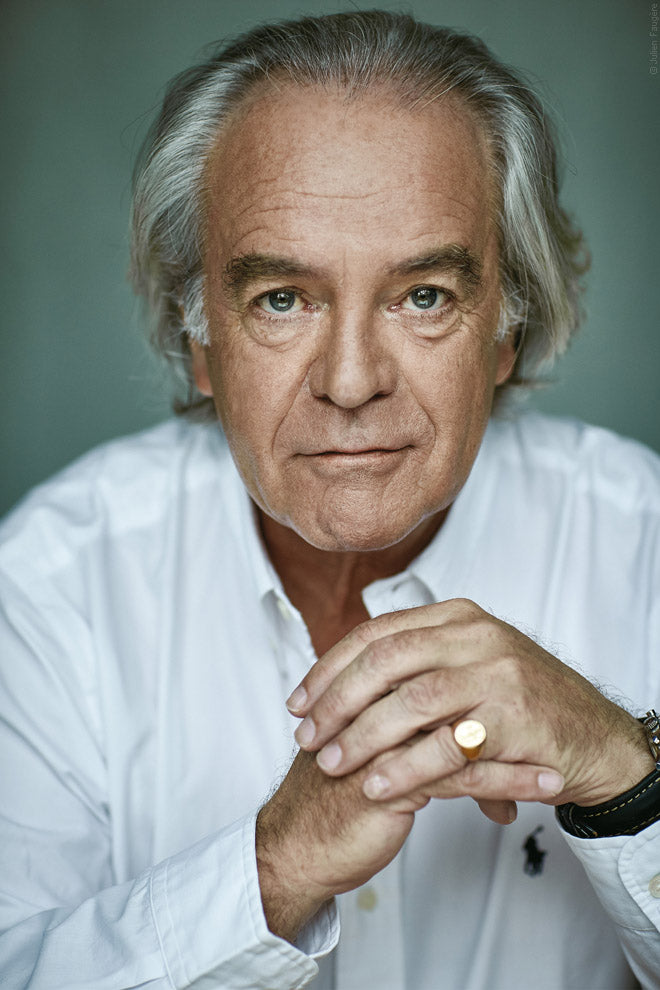
Interview with Dr. Daniel Dufour: Recognizing and healing emotional injuries from childhood
Interview with Dr. Daniel Dufour: Recognizing and healing emotional injuries from childhood
"People are often deeply hurt by an early experience of being abandoned. This - often unconscious - 'abandonment' can lead to a wide variety of physical or psychological problems without those affected being aware of the triggering, usually long-ago 'wound'. The OGE method gives them the opportunity to get to their own emotions, live them out and heal them." General practitioner Dr. med. Daniel Dufour , head of the Vitamed clinic in Geneva, explains in his book "The Abandoned Child" how one can explore suppressed feelings, become familiar with one's inner self and thus recover physically and mentally.
You believe that early abandonment is one of the most common causes of mental suffering in your patients. How did you come to this conclusion?
Dr. Dufour: My patients are not imagining their suffering, it is really physical and/or psychological. The fact is that I have been working as a general practitioner for 27 years and in my practice I treat patients who come to me with a wide variety of symptoms. This ranges from recurrent sinusitis to cancer or cardiovascular disease. When I then go with these patients to look for the causes of their problems, we often return to a key experience in which they did not allow themselves to express their emotions, i.e. their sadness, their anger or their joy. Layer by layer, like peeling an onion, we then penetrate to the wound that was caused by a first experience of abandonment. Those affected are often not aware of this wound, and only by trying to understand what the body - as our best friend! - is trying to tell us, do they succeed in perceiving this wound. That's why I can now talk and write about how often people are hurt by abandonment - something I didn't realize at all when I first started working as a doctor.
What reactions does abandonment lead to in those affected and how can the doctor or therapist recognize that this is the cause of their complaints?
Dr. Dufour: There is no symptomatology or illness that is specific to abandonment! The only person who can recognize the wound is the person affected. In my opinion, doctors and therapists can only support the person affected when it is discovered, but cannot give a clear diagnosis. If it does happen, this approach usually only triggers a flight reflex or denial of abandonment in the person affected. The fact is that it is very difficult for a person to admit that they have been abandoned. They are very ashamed of having experienced such a thing and, on top of that, feel responsible for it themselves. However, certain behavioural patterns in the social and private lives of the person affected can put you on the right track: a lack of self-esteem, a certain, repetitive way of dealing with one's emotions, the fear of being alone, the emptiness felt when leaving home after a weekend or a holiday, the unwillingness to commit to a relationship or, on the contrary, the effort to do and accept everything to maintain a relationship, the refusal to commit to relationships or work, etc.
Classical psychiatry also uses the term “abandonment neurosis” and encompasses a whole range of symptoms under it. What exactly does this mean and how does it differ from your approach?
Dr. Dufour: When I was writing this book, I was very surprised at how few studies and researches there are on the subject of abandonment. Psychoanalysis has introduced the concept of "abandonment neurosis" - thanks to two Swiss psychoanalysts, by the way - but it has remained very vague. In psychiatry, there is an annoying habit of linking the suffering to a neurosis or other psychological problems. For example, shyness has become a serious psychological problem, known as "social phobia," which must be assessed by a psychiatrist and perhaps even treated with antidepressants. Who is "learned" enough to judge whether a person's suffering is normal or abnormal? Of course, those who are confident in their knowledge and skills! Moreover, neither psychoanalysts nor psychiatrists have ever claimed to help a person to be "cured," but only to help him "function" again. That is not my belief, because ultimately a person affected should not just function despite or with their wound; they are perfectly capable of no longer suffering, but of living happily as soon as their wound has healed. At the same time, that explains why my approach is different, because the intention behind it is different: it is not my approach that heals a person affected, but the person affected themselves, who, with my support, corrects the problem.
For these reasons, I have coined the word "abandonment" to describe the feeling of being abandoned, rejected or excluded, as well as the many different physical and psychological problems that the person affected experiences as a result. This term stands for the suffering of someone who feels abandoned - whether rightly or wrongly. It contains no moral judgment, it is neither negative nor positive. It is simply a term for a whole that is very complex and makes no reference to the norm (or normality) of a being.
Often, those affected are no longer aware of the memory of the early experience of being abandoned. Is this repression as a protective mechanism?
Dr. Dufour: Most of the time, the original trauma is no longer in the victim's consciousness. When someone manages to identify an event or a cause through rational analysis, it later turns out that this is not the original trauma, as I explain in my book with several examples. This "forgetting" is clearly part of a defense mechanism. It is very difficult to endure the feeling of being abandoned by the people who should be caring for an infant or a small child. To get through this, the victim of these acts must find something that allows them to distance themselves from their emotions and live them out in a world that is not the one they are exposed to.
In your book, the so-called “thinking” is blamed for the actual suffering caused by abandonment. What does that mean and what is the purpose of this “protection system”?
Dr. Dufour: The “thinking” is clearly defined and I ask you to take into account this definition, according to which it
1. cuts us off from the present and consequently catapults us into the future with its entourage of anxieties, fear and restlessness or into the past, which is full of regret, remorse and guilt,
2. prevents us from recognizing, admitting and living out our emotions, i.e. our joy, sadness and anger, and
3. separates us from our innate knowledge and from the intuitive and creative people we really are.
It is also what subjects us to value judgments and constraints: "You have to" or "I have to". "Thinking" is clearly distinct from our brain and its ability to remember, make plans and reflect. "Thinking" can also be described as the ego, a "crutch" or a "hamster" (as they like to call it in French-speaking Canada); it always refers to the protective mechanism that a child uses to be cut off from his grief and anger and thus escape the present. But it is this "thinking" that later causes suffering, because it keeps a person stuck in his fears and/or feelings of guilt and also prevents him from recognizing, feeling and living out the emotions triggered by abandonment.
At one point in the book, being abandoned is described very drastically as an “attempted murder.” Doesn’t this presuppose a perpetrator who commits the act intentionally?
Dr. Dufour: I have been accused of this before, but I stand by it completely. What would you say to an adult who takes responsibility for bringing a child into the world but then does not satisfy its hunger and thirst? Love is the nourishment without which a child can only survive with difficulty. Of course, you can also see it this way: people who do not give their child affection do not do so with the intention of harming it. If they do not succeed in loving their child, it is only because they do not love themselves. But this argument should not at least prevent the victims from being angry and acting out this anger. My book was not written for caregivers or for those responsible for not having loved their child, but for the people who had to endure this lack of love - so that they can grant themselves the right to be angry at those who did this to them; so that they finally do not have to suffer any more and can recover, and thus get along better with themselves and others.
In contrast to analytical and rational therapy concepts, which are also supported by medication, you use an alternative approach to recognize, feel and express your own emotions. What is special about this method?
Dr. Dufour: My approach is based on recognizing, allowing and expressing one's own emotions - mainly anger - after silencing one's "thinking" which, when active, blocks these emotions. At this point, it is important to stress that one should not express one's emotions towards or in front of others. This is something one does on one's own, to do something good for oneself. It helps the person suffering from abandonment to heal their wound by understanding all the background. The goal is not to have to live with it any longer. This approach is therefore practical, not theoretical. It may seem simple, even too simple and one-sided, but firstly, it works well and produces excellent results, and secondly, it is not that easy to implement because our "thinking" is very strong.
The practical implementation of this concept is realized in the OGE method. How can you imagine this and how does treatment using this method work?
Dr. Dufour: The word OGE is a play on words, it is the inversion of the word "ego", another term for "thinking". It means that you must first be in the present if you want to "switch off your thinking" in order to get to your own emotions and rediscover the person you are. This first pillar of the method is essential because without it we cannot get in touch with our emotions. The approach is a help for those affected, but in no way a medical treatment in the strict sense. This method can also be implemented under classic therapeutic supervision, as long as the emotional side is taken into account AND lived out. So-called OGE therapists, whom I have trained, are also available for implementation; they offer seminars and practical exercises. For more information, I refer you to the OGE website ( www.oge.biz ).
Book tip:
Dr. med. Daniel Dufour: The abandoned child - recognizing and healing emotional injuries from childhood. Mankau Verlag, 1st edition May 2020, paperback, 12 x 19 cm, 190 pages, 12.90 euros (D) / 13.30 euros (A), ISBN 978-3-86374-533-0.
Link recommendations:
More information about the paperback "The Abandoned Child"
To the reading sample in PDF format
More about the author Dr. med. Daniel Dufour
To the Internet forum with Dr. med. Daniel Dufour
